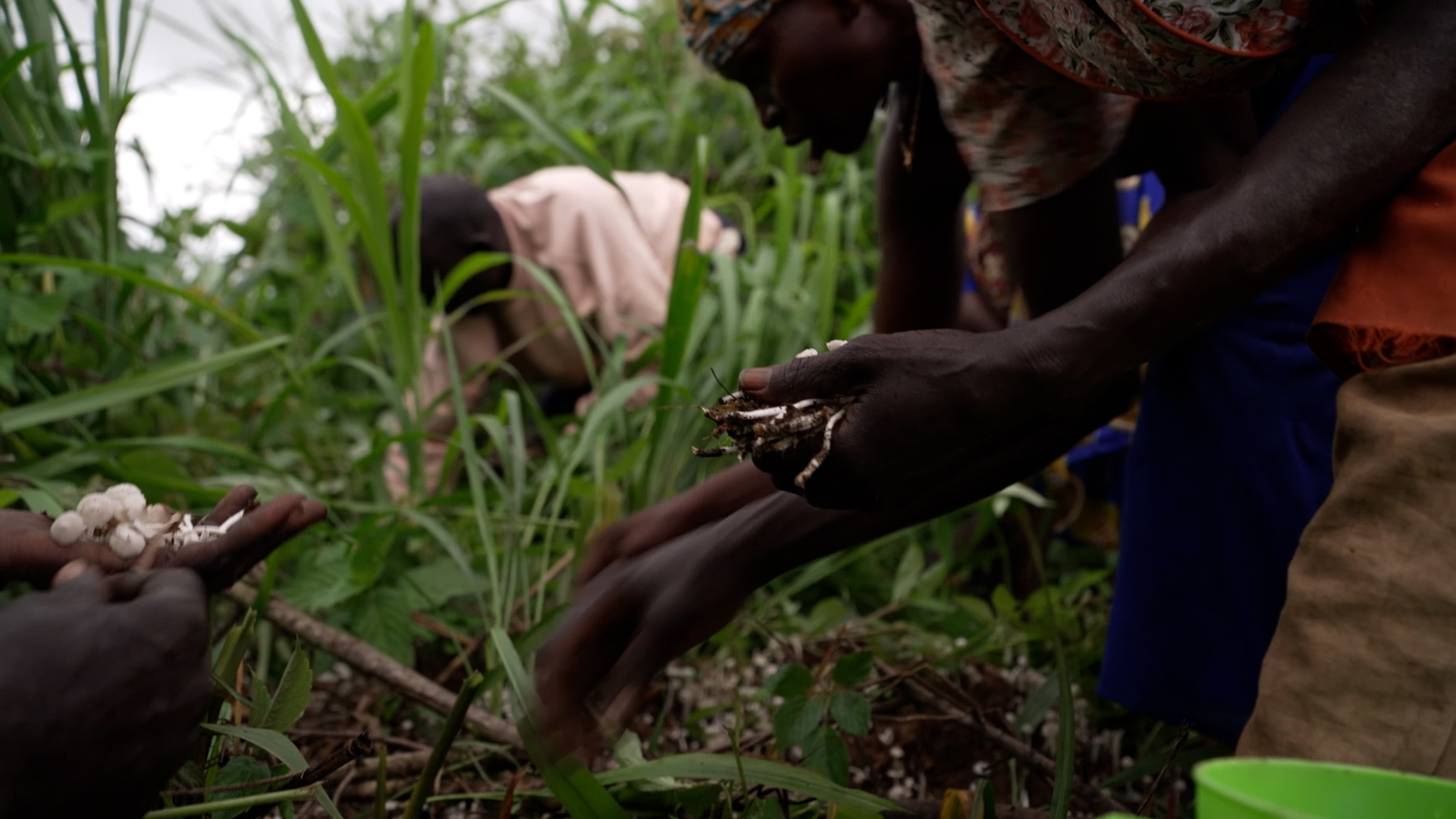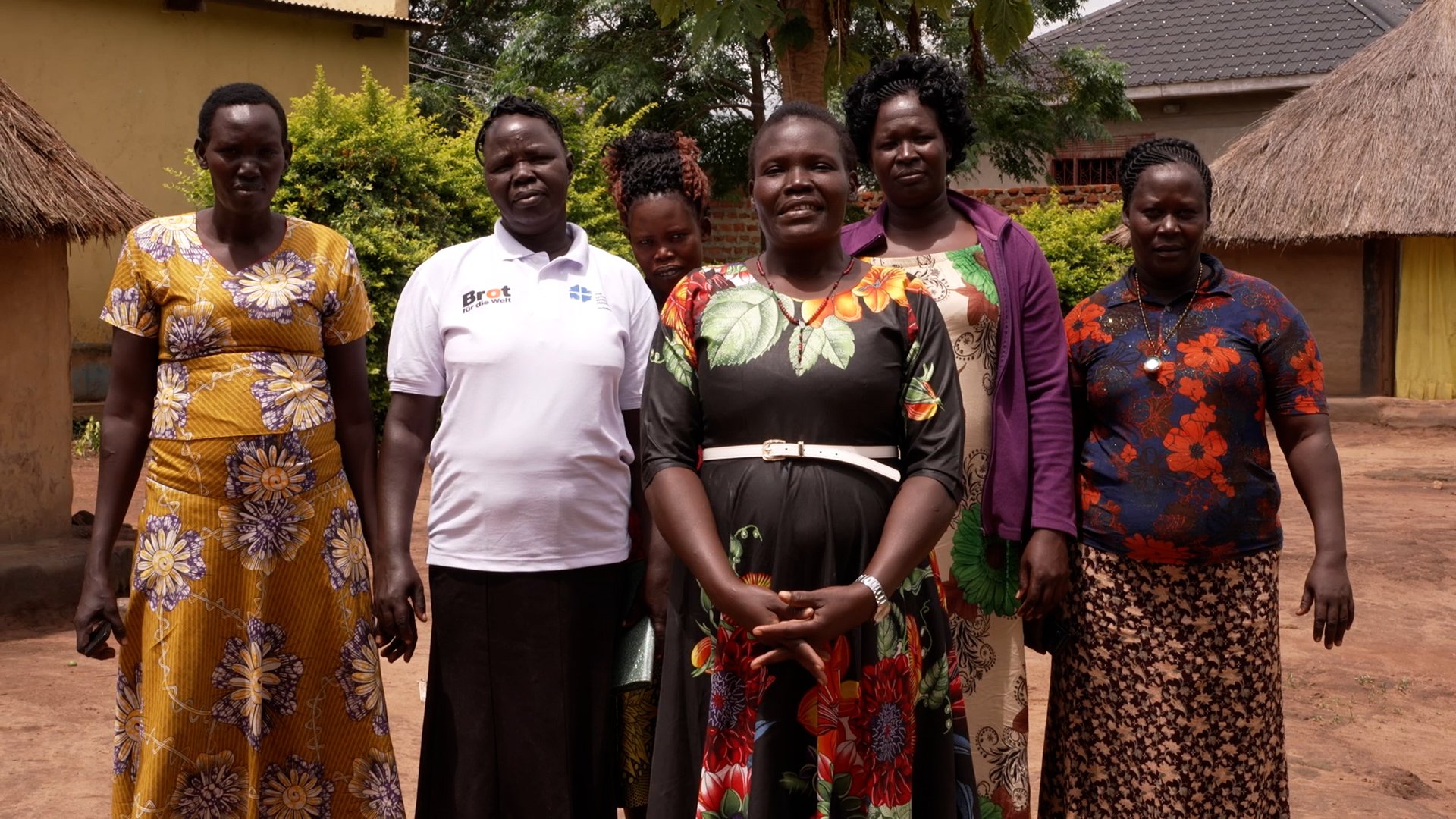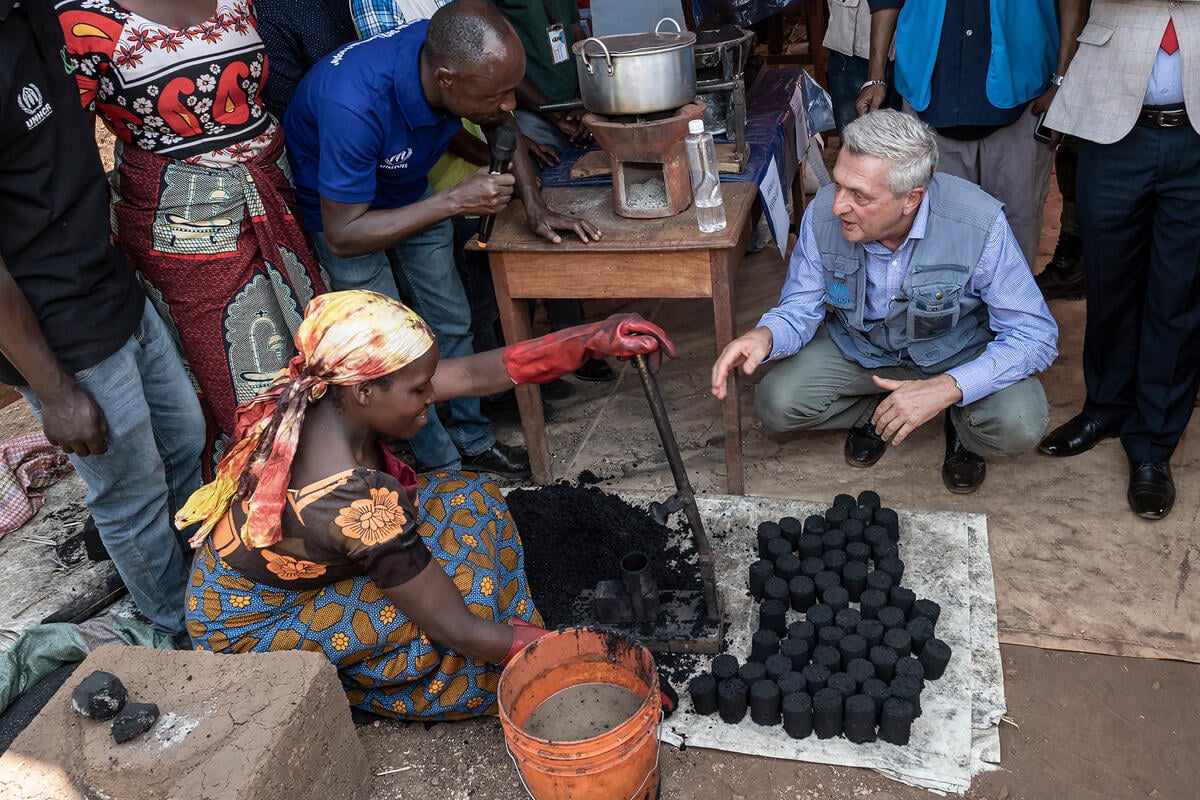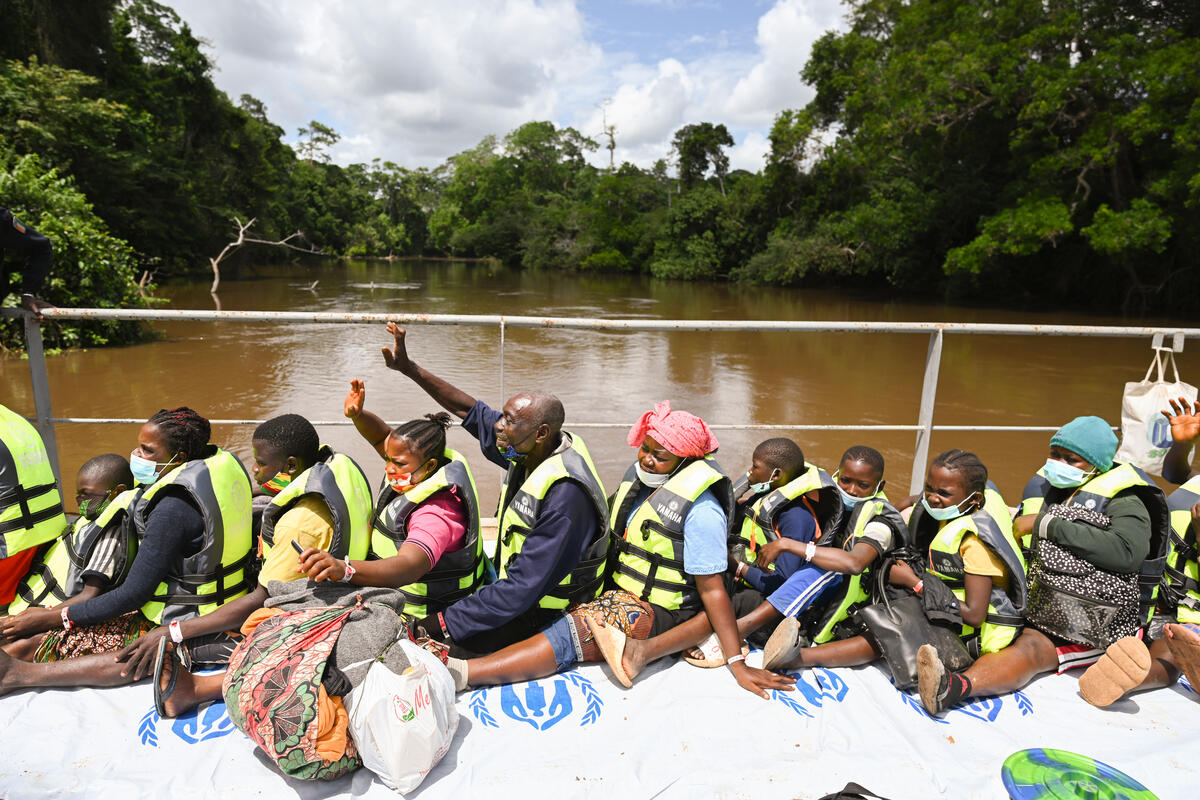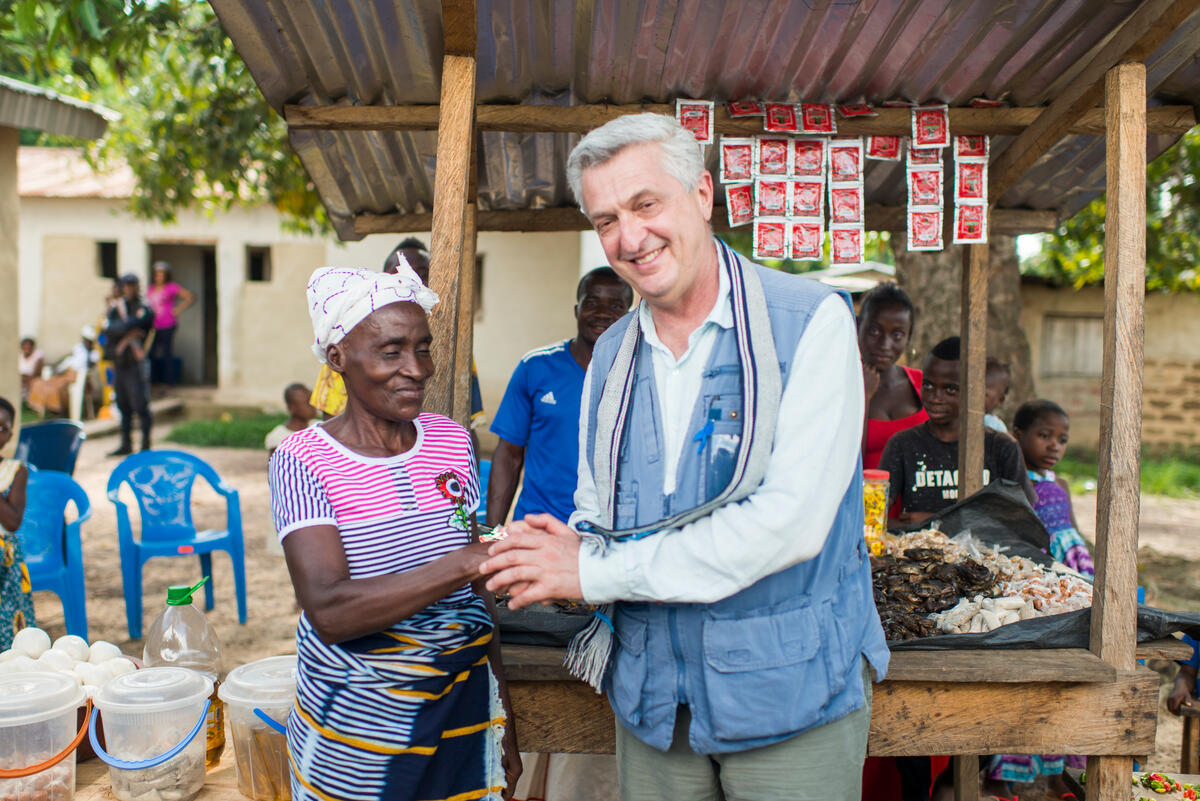Signs of rebirth and reconciliation in Angola as returnees settle back home
Signs of rebirth and reconciliation in Angola as returnees settle back home

CAZOMBO, Angola, Mar 13 (UNHCR) - Along the road that leads from the ruins of the bridge that once spanned the Zambezi River to the formerly deserted Angolan town of Cazombo are signs of rebirth.
Villagers walk in line at dawn toward a communal field where they heap mounds of earth around young cassava bushes. On one side of the road, the UN refugee agency has helped restore a school. On the other, a new white building is destined for a task which goes to the heart of reintegrating returning refugees in a country after 27 years of war - a reconciliation centre.
"During the war the majority supporting the opposition party were from the south and those supporting the ruling party were from the north," said Sister Mary, from the Catholic order Our Lady of the Sacred Heart. She oversees the reconciliation centre that opened last June with UNHCR help.
The population in this eastern region of Angola has now returned to nearly 100,000 after dwindling to only 5,000 in the decades of struggle between the armed forces of the opposition UNITA and the ruling FNLA party. "People from this place left for Zambia; only a few stayed. After they come back all these people have problems because those who stayed think they are all UNITA [opposition] supporters. After the war they have to be reconciled."
A small library and a supply of newspapers at the centre, plus training in agriculture and a micro-credit scheme, attract a steady stream of visitors. But its main purpose is to get Angolans who left to unite with those who remained and together focus on the goal of improving their lives in one of the world's least developed countries.
"Maybe in their minds they still have things from the past, but now they talk about the future," said Sister May, who is originally from Papua New Guinea and lives in the restored church mission across the road. "We visit the families and no one talks about the war. They talk about normal things and how they are going to build new lives."
Rebuilding trust between the communities is central to reintegrating the millions of Angolans who fled, either abroad to countries like Zambia and the Democratic Republic of the Congo (DRC), or to other parts of this huge country.
Underlying political tensions remain a factor in Cazombo, despite the 2002 peace agreement which made UNITA a junior partner in government and replaced a military struggle with democratic political competition for power. National elections are expected to be held in 2007.
Returnees say that one of the main problems facing the younger generation who grew up outside the country is prejudice because many do not know Portuguese, the unifying language of Angola. At a women's centre which UNHCR helped build for returnees in Luena, the capital of Moxico province that includes Cazombo, people say the language issue particularly affects their children.
"Children coming from outside - from the Congo and Zambia - are easily identified because they don't speak Portuguese," the traditional headman told a meeting. "They are calling the people who are returning 'Zambians.' That has even affected the children at school - they are teased or even beaten by other children."
Returnees complain of other difficulties, especially finding employment. But with most refugees born outside Angola and educated in French in the DRC or English in Zambia, their lack of Portuguese language skills is an understandable problem.
There is some language instruction - Portuguese lessons for example are given at the Cazombo reconciliation centre - but with nearly 400,000 returned refugees since the war ended, most people will acquire the language in less formal ways.
While some parents are angry at seeing their children put into lower grades than they had attended outside the country, those children who gain space in the crowded Angolan school system will learn Portuguese, just as their parents learned other languages when they were forced to flee.
Reintegration and reconciliation must be accompanied by better living standards for everyone in regions that were already mired in poverty before years of war made them even poorer. UNHCR has used its limited resources as a catalyst to spur further development, and has worked closely with the government to increase its ability to drive change.
But Angola itself, with a wealth of natural resources - oil, gas and diamonds - that contrasts with its position among the least developed countries in the world, will determine the pace of progress. The government has announced major investments in infrastructure, education and health. However, just rebuilding the shattered bridge over the Zambezi River, which villagers near Cazombo now cross in a dugout canoe, would cost an estimated US$2 million.
Some returnees clearly have regrets about coming back home. In the refugee camps in neighbouring countries they had medical care, education and food. All of which are more difficult or expensive to obtain back in Angola. Still, like all refugees, Angolans are happy to see the cities and fields they either fled or have been hearing about from parents for years.
In a field on the outskirts of Luena, 33 members of an extended family huddled under makeshift shelters of tin sheeting and plastic sheeting provided by UNHCR as the torrential winter rains pounded down. Israel Satulou, heading the group, said he had returned in December on a flight organised under the UNHCR voluntary repatriation programme because so many refugees had already left Zambia that he felt it was time to go home.
While he conceded that conditions in Angola were tougher than he had expected, he was trying to improve their lives - a solar unit he had carried from Zambia was powering a single light bulb during the night and the small machine he had brought to grind grain was providing a small income.
"Problems do come to an end," he said amid the mud. "We are praying for that."
By Jack Redden in Cazombo and Luena, Angola



